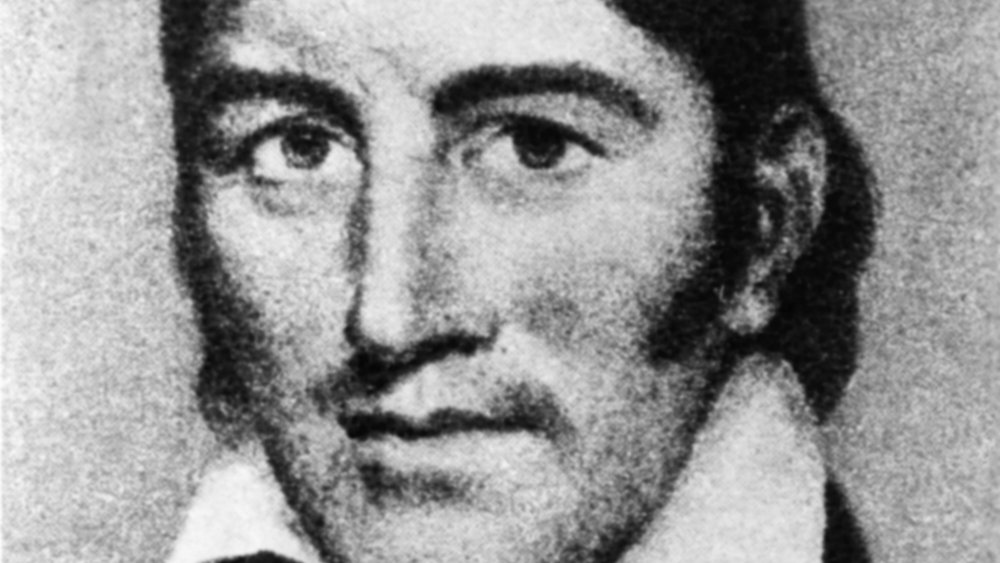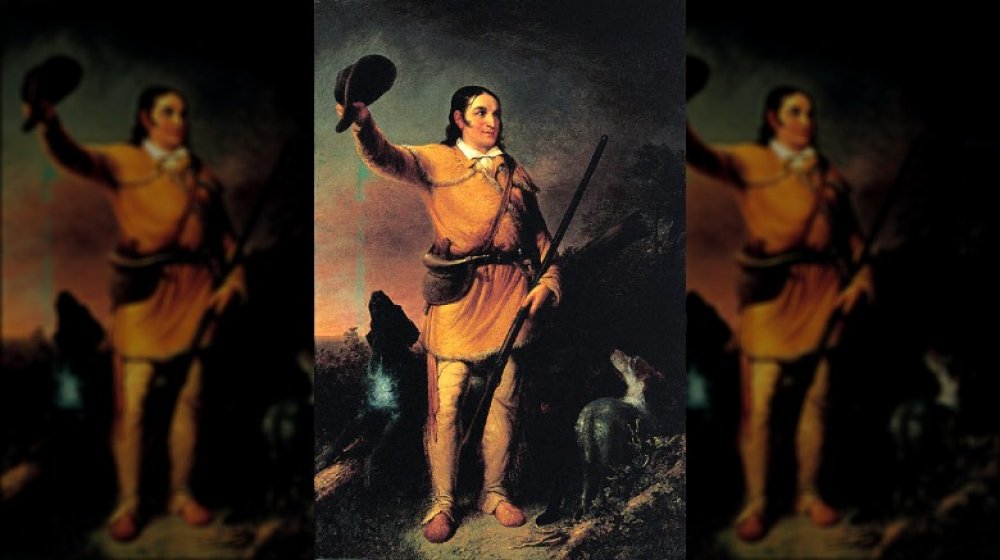The Truth About Davy Crockett's Wives
Davy Crockett has been capturing the popular imagination ever since he entered public life as a politician back in the 1820s. He was the basis for a very popular play during his lifetime, under the name Nimrod Wildfire (and why not?). A later play, with his actual name in the actual title, appeared in 1872, more than 30 years after his death at the Alamo, and ran for 24 years. According to Buddy Levy's American Legend: The Real-Life Adventures of David Crockett, the play only closed when the lead actor died.
Movies, novels, autobiographies, biographies, TV. King of the Wild Frontier. But, also, a family man.
He married the first time the day before his 20th birthday, to Mary (Polly) Finely, in 1806. He never spoke of her with anything but tenderness and devotion, calling her "a tender and loving wife." How she died isn't clear, but bear in mind that there was a long list of possibilities for death. It is known that she suffered for some time – complications from childbirth is a strong possibility — before dying in 1815, leaving him with two young sons and an infant daughter. The next year Crockett remarried, to a woman named Elizabeth Patton, a widow who had a son and daughter of her own.
Davy Crockett liked to hunt
Patton also farmed, and more successfully than Crockett. She also had actual cash to her name, unlike Crockett. And her children were about the same age as Davy's kids. Probably not a match made of love and passion, but rather of utility, on both their parts. Together they had three children — two girls and a boy.
The marriage lasted until his death, although it was not necessarily a happy one. Crockett was often gone, either hunting or exploring or serving political terms in Washington D.C. He was a terrible businessman and apparently less than responsible about money in general — one of his consistent solutions to a debt was to borrow the necessary cash from one individual in order to pay the other. He drank fairly heavily as well — he loved a party. Elizabeth was more sensible, a manager — and she became fed up with her man-child husband. She moved out, with the children, at least once. Relations remained testy until the end of Davy's congressional career and decision to move to Texas. He had hopes that she and the children would join him there after he'd had a chance to settle some new land.
It didn't quite work out that way. Elizabeth survived Davy, dying in 1860 after moving to Texas with one of their sons.

